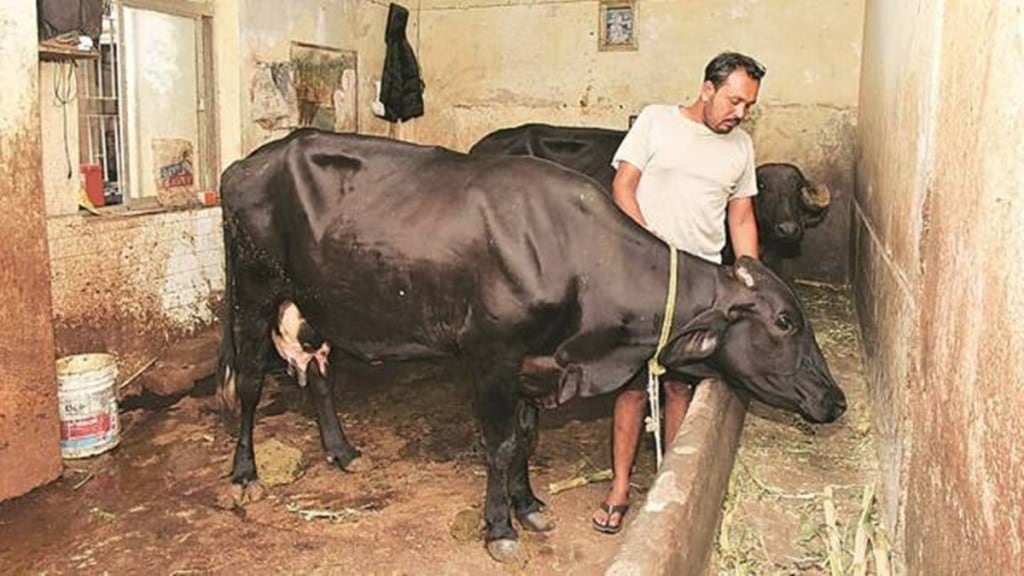The government has withdrawn the draft Livestock and Livestock Products (Importation and Exportation) Bill 2023 after animal welfare activists and some other outfits protested against many of its provisions. Sarthak Ray analyses what led to the repeal of the Bill.
The Bill
The draft Livestock and Livestock Products (Importation & Exportation) Bill, 2023, had been placed before the public for feedback on June 7. The Bill was intended to withdraw Live-stock Importation Act 1898. The law, of colonial vintage, had last been amended in 2001 and many provisions had become quite outdated or needed a widening of scope.
Also read: Jammu and Kashmir has accepted changes effected after abrogation of Article 370: Amit Shah
While the government intended to “frame measures for the regulation of the importation … as well as promotion and development of exports of livestock and live-stock products” with the Bill, the Bill was also cognizant of the need to “frame sanitary measures for … livestock and livestock products which are liable to be affected by transboundary and exotic infectious or contagious diseases liable to affect animals and/or human health”.
Broad provisions
The now-withdrawn Bill included livestock under its classification of “commodity” subject to regulation under it. Products of livestock origin, genetic material, biological products and pathological material of livestock origin were also included under this classification. Livestock included all equines (horses, donkeys, mules, etc), bovines (cattle, buffaloes, and other Bovidae), caprines (goat, tahrs, etc), ovines (sheep etc), swines (pigs, sows, etc), canines (dogs), felines (cats etc), avian (birds including poultry), laboratory animals and aquatic animals.
The Bill empowered the Centre to restrict or prohibit import of any livestock or related products (including fodder, feed, dung, etc) that could transmit diseases. The Centre had empowered itself to “promote and develop export of live-stock and live-stock products.”
Differences with the existing law
The key difference is that the Bill significantly widened the scope of ‘livestock’ that can be traded. While the existing law includes animals commonly traded such as equines, bovines, porcines and poultry, the repealed Bill allowed trade in cats and dogs also. Bear in mind, there are nations where these animals are commonly eaten.
The Bill also clipped the power of the states to regulate some areas in the livestock trade ecosystem. The existing law allows the state governments to “make rules for the detention, inspection, disinfection of destruction of imported livestock, and of fodder, dung, stable-litter, clothing harness or fittings appertaining to imported live-stock or that may have been in contact therewith” and “for regulating the powers and duties of the officers whom it may appoint in this behalf.”
The repealed Bill vested such powers with the Union government, along with the power to penalise violations.
Critcism and repeal of the draft Bill
The draft Bill came under fire from several quarters, for several reasons. Critics attacked the Bill’s “commodification” of animals for export. The Indian Express quoted the top official of an animal-rights body as saying that the Bill is a “blanket pass for the abuse of animals farmed for food and other purposes”. Actresses Zeenat Aman and Jaya Bhattacharya both called for a repeal on social media. Many activists said that the Bill would have facilitated unregulated and massive export of animals, and trade would have led to the gene pool of animals in India shrinking with certain breeds being favoured above others. They said that the export of native animals (and the import of non-native ones, inlcuding cat and dog breeds) to climates not conducive for them would amount to cruelty.
Some Jain outfits have also voiced opposition to the Bill. The Bharatiya Kisan Sangh, a Rashtriya Swayamsevak Sangh affiliate, said that though the Bill would be “a panacea for the menace of stray animals” (as per Business Standard), it could hurt religious and cultural sentiments.
All this criticism has forced the government to withdraw the Bill, mindful of “the representations … made expressing concerns on the proposed draft involving sensitivity and emotions with animal welfare and related aspects”.

